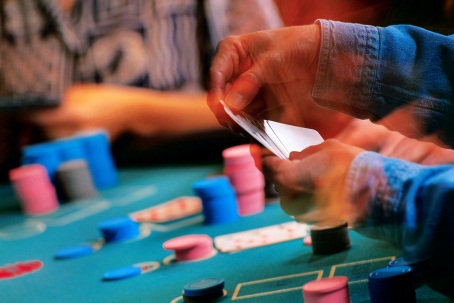Is there such a thing as a lucky person or a lucky streak? And does belief in good and bad luck play a part in whether we are prepared to take chances, asks Megan Lane.

I won a pair of cinema tickets recently, then a free haircut.
1) While sceptical about luck, I couldn't help but wonder if it might run in threes. The next day, I had a third stroke of luck - a mugging. Was it bad luck that I had my bag snatched? Or good luck that I was unhurt? Neither. It was a chance event. When weighing the risks of walking down an unfamiliar street, feeling lucky didn't come into it (much). Subconsciously, I balanced the time of day - early evening - and the presence of street lighting against the area being unexpectedly isolated.
1) Lane (2011)
whether lucky incidents happen in sets of three.
2) "Luck is a really interesting aspect of risk and chance," says Cambridge University psychologist Dr Mike Aitken
"Luck is a really interesting aspect of risk and chance," says Cambridge University psychologist Dr Mike Aitken, co-creator of BBC Lab UK's new
Big Risk Test, which explores the type of person likely to be a risk-taker or risk-averse. "We can all remember days when good things happened to us, and days when less-good things happened, and we attribute the difference to a lucky day and an unlucky day. You could argue that luck exists in that sense."
2) Aitkin (2011)
that luck is fascinating when considered part of risk and chance.
But some people believe luck influences external events - that if they buy a lottery ticket on their lucky day, they'll be more likely to win.
3) "That's a much harder belief to justify, because there's no way the day you buy your lottery ticket can influence the likelihood that you're going to win," says Aitken.

"Research has suggested that people who think of themselves as lucky actually are lucky, because they are more willing to take advantage of opportunities." Also, those who believe they are inherently lucky tend to be of an optimistic bent, and get more optimistic about the likelihood of future success after a seemingly lucky event - a "lucky break" makes them more confident and optimistic.
3) Aitkin (2011)
luck can determine external events.
Feeling lucky
4) Believing that one's success is down, at least in part, to good luck leads to attempts to control it. Athletes and gamblers often carry out superstitious rituals in the middle of a winning streak, such as wearing the same lucky shirt, or eating the same lucky meal. Because then they might keep on winning. Touch wood.
Athletes and gamblers often carry out superstitious rituals in the middle of a winning streak, such as wearing the same lucky shirt, or eating the same lucky meal. Because then they might keep on winning. Touch wood.
4) Lane (2011)
that people such as athletes and gamblers believe they can control their luck.
There are two approaches to deciding whether to take a chance and leave the outcome to luck, whether it's placing a bet, hang-gliding or even deciding whether to take an umbrella in case it rains - head v gut. "There's risk as analysis, where you work out the odds of [winning] the lottery," says test co-creator David Spiegelhalter, professor for the understanding of risk at University of Cambridge. "Then there's risk as feeling, which can be influenced by you feeling ‘this is a good day for me, I'm going to take this risk, do this bold thing'."
5) Perhaps that's why I didn't turn back and instead took what looked like a shortcut down a lonely road - I was feeling lucky. Maybe I should have crossed my fingers. Or was there a black cat that crossed my path?
6) But believing in luck can  serve a useful function, psychologists say
serve a useful function, psychologists say. It may help us cope with chance events such as being involved in an accident, a mugging or natural disaster, as it can help people feel more optimistic when circumstances are beyond their control. Maybe I should have bought a lottery ticket that day after all...
5) Lane (2011)
that she continued walking down the lonely street because she was ‘feeling’ lucky.
6) Psychologists
that having a belief in luck can be very useful.